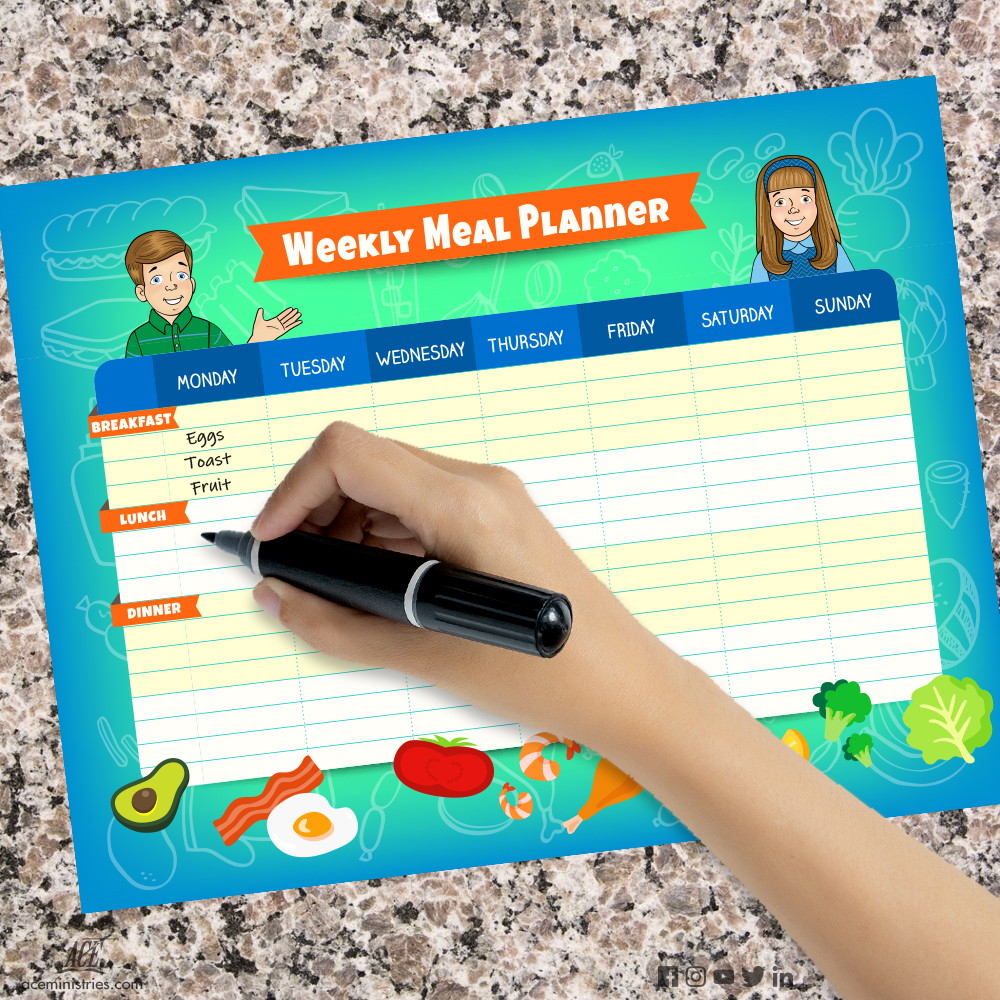Planning and preparing meals are important life skills for children to learn. Each person must eat to provide fuel for his body. Knowing how to plan and prepare meals is important for good health and maintaining a budget.
Starting in the Kitchen
Share the excitement of creating dishes with your children. Encouraging your children to help you in the kitchen will give them a foundation in cooking. Safety is the upmost importance! Make sure your children are mature enough to comprehend and abide by all safety precautions you have set. Once they have the basics down, children are ready to move to meal planning where their creativity can really start to flow!
Planning Meals with Beginners
Have your children assist you with these simple meal-planning steps:
- Use a meal-planning chart to help organize meals for each day of the week. You can print our Meal Planning PDF or create one of your own.
- Check your week’s activities. Make a note of the days when meals will be more challenging.
- Start planning dinner meals first by choosing simple, but nutritious dishes. TIP: Save time by cooking extra food for dinner to provide leftovers for lunch the next day.
- Write down breakfast and lunch options that won’t take much preparation (eggs with toast or cereal for breakfast, leftovers or sandwiches for lunch). Focus mainly on dinners until children get used to meal planning for a couple weeks.
- Make sure all days have a good balance of proteins, vegetables, and carbs. If needed, consult your doctor or a registered nutritionist for detailed information on what would be the best diet for your family.
- Create a shopping list of items needed to create the meals. This can be done on a separate sheet of paper or a mobile shopping list app.
- Remember to use the fresh ingredients at the beginning of the week to keep food from spoiling.


